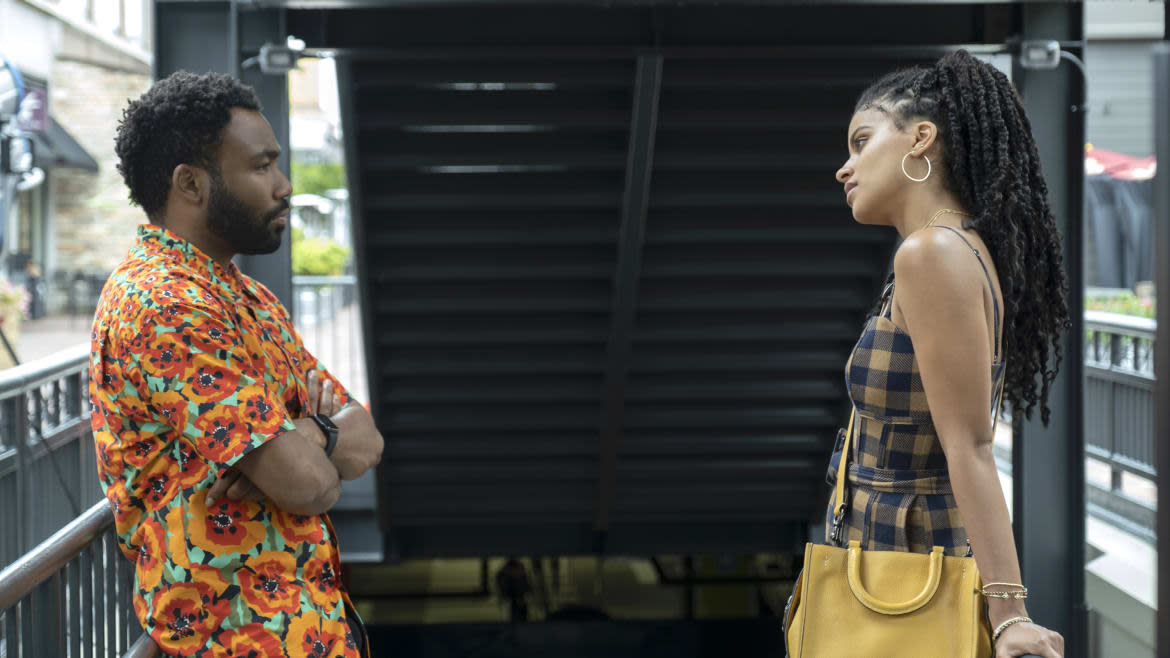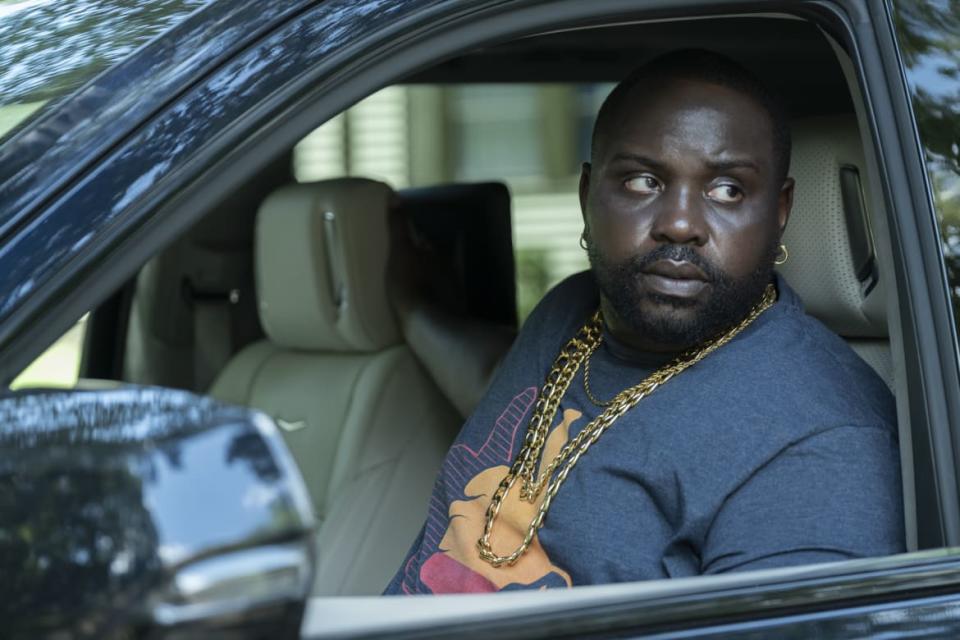Donald Glover’s ‘Atlanta’ Recaptures Its Magic in Fourth and Final Season

Atlanta has seen its share of highs and lows since it first aired on FX in 2016. In its first two seasons, the comedy series and its creator and star Donald Glover became critical darlings, earning widespread acclaim and some fancy hardware, including six Emmys and two Golden Globes. However, its highly anticipated third season was delayed nearly four years due to scheduling conflicts with the show’s increasingly in-demand cast and, of course, the COVID-19 pandemic. So, it was disappointing to realize, when the show returned in March, that none of its gags, social commentary, and typically well-done standalone episodes were really worth the wait.
Now, in its fourth and final season, Atlanta has a little bit more to prove than it did a few years ago. Will Glover and the rest of the series’ writers be able to remove the bad taste they left in viewers’ mouths? And will a show so prone to distractions and narrative excursions be able to provide satisfying endings for its main characters?
In Season 4’s first three episodes at least, Atlanta has found its footing again. It helps that the writers have brought the show’s main protagonists Earn (Glover), Al (Brian Tyree Henry), Darius (LaKeith Stanfield) and Van (Zazie Beetz) back to their usual stomping grounds in the U.S. where they can’t escape their often depressing and disappointing realities. Despite an interesting setting in Europe last season, where Paper Boi embarked on a fairly successful tour, the writers often veered away from the unique perspectives of its ensemble to explore a myriad of Big Issues like passing, reparations, domestic work and, in general, whiteness with little payoff.
‘Atlanta’ Season 3 Finale Boasts Cannibalism, Alexander Skarsgard Jerking Off, and the Return of Van
Back at home, though, the characters are forced to address their responsibilities and acknowledge how much they have or haven’t progressed since Paper Boi’s accidental breakout hit upended their lives. Notably, Earn is out-hustling his peers and expanding his résumé as a talent manager while Al is hopelessly navigating an industry he’s not built for or, rather, isn’t built for him anymore. Observing the previously aimless Earn finally be able to provide for his family is exciting, but watching him outgrow his cousin and presumably leave him behind eventually is devastating.
The first episode though, appropriately titled “The Most Atlanta,” is some pretty light, plot-less fare, combining the show’s surrealist method of storytelling with some local, in-house humor. Maybe television’s most exhausting on-and-off couple, Earn and Van, are apparently back together and spend a day shopping at Atlantic Station where they can’t avoid their exes. Meanwhile, Al ends up on a weird scavenger hunt that leads him to a funeral for a slain rapper. And Darius gets chased by an elderly white woman in an electric scooter trying to stab looters in the midst of a riot (IYKYK). And that’s all there is to it really. It’s a funny transitional episode, implying that the interpersonal and systemic horrors these characters thought they left behind in Europe will always be waiting for them back home.
By episodes 2 and 3, the show is back in full-swing and firing on all cylinders. In “The Homeliest Little Horse,” written by Ibra Ake and directed by Angela Barnes, Earn starts seeing a therapist in probably the most main-character moment he’s had throughout the show, which often doesn’t explore his psyche beyond his exhausted facial expressions. Among other racist encounters with white women, he recalls an infuriating incident when a white airport employee prevented him, Van and Lottie from boarding a plane. (This dialogue-heavy episode is also a good showcase for Glover’s talents as an actor). At the same time, we watch a white woman successfully pitch a children’s book to a publisher—or so we think, until these parallel storylines finally merge to deliver an elaborate moment of Karen revenge.
“Born To Die,” written by Jamal Olori and directed by Adamma Ebo, is by far the most singular, with a level of sharpness and complete outrageousness of a Season 1 episode. It’s no shock that the episodes of Atlanta that really work often center on Al. Henry is a stellar performer, and Paper Boi is weirdly one of the most delightful characters to watch on TV (despite being a bit of a grouch). Furthermore, Atlanta’s depiction of the fast-changing and predatory music industry—something its creator is extremely knowledgeable about—often makes for its strongest social commentary. And in this final season, it’s no different.
Al gets a depressing reality check about the fate of his career when he attends a meeting for rappers in their flop era. One of the paths to financial success, according to the group’s leader, is finding a white rapper, who will likely garner a huge fan base and win Grammys, to mentor and manage. The episode is a scathing critique of the Jack Harlows of the world, whose mediocrity and appeal to white audiences has made them bigger stars than Black hip-hop artists with actual talent. But it also brings Al to an important crossroads in his career, which has practically been on life support since halfway through Season 1.
Additionally, in a separate storyline, Earn is on a mission to sign D’Angelo to his talent agency, which leads to one of the funniest (and dumbest) plot reveals I’ve ever seen that I will surely not spoil here.

Atlanta Season 4 premiere, “The Most Atlanta,” starring Brian Tyree Henry as Alfred “Paper Boi” Miles.
While Season 4 is certainly an upgrade from last season, so far, Atlanta still has some things to address—particularly Van’s storyline, which was largely an afterthought in Season 3 until the exceptionally good finale that was entirely dedicated to her spiraling. Her relationship with Earn has always been purposely ambiguous. But it would be nice if viewers could get some clarification on whether Van is actually in love with him or just settling for stability. What does her future look like outside of raising Lottie and following him around? The same could be asked about Darius, whose entire livelihood seemingly revolves around the success of his friends.
For all intents and purposes, it seems like Atlanta is officially back, even if it feels a little too late. The series may have previously let Twitter discourse and viral moments get in the way of some great storytelling. But as the show comes to a close, it’s nice to know that Glover and his team of talented collaborators still got it.
Get the Daily Beast's biggest scoops and scandals delivered right to your inbox. Sign up now.
Stay informed and gain unlimited access to the Daily Beast's unmatched reporting. Subscribe now.

 Yahoo News
Yahoo News 
